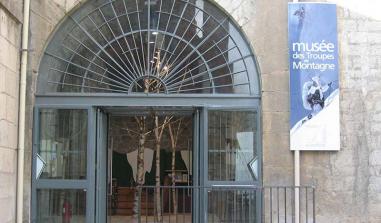Museum of Resistance and Deportation in Isère
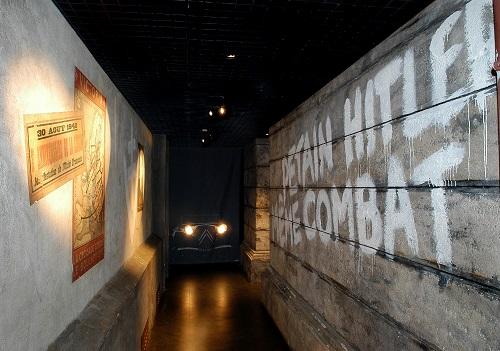
Musée de la Résistance et de la Déportation de l'Isère. ©Conseil général de l’Isère
The Museum highlights the specific nature of the Resistance movement in this department of France.
During World War II, Grenoble was part of the free zone until November 1942, when it was first occupied by the Italians until November 1943, then by the Germans until its liberation in August 1944. Isère is one of the French departments where movements, networks and underground Resistance maquis were particularly active.
From 1940, individual initiatives came together to form more structured movements and networks. Close to Grenoble, wide valleys surrounded by mountains and forests were a favourable geographical location for the growth of the maquis: originally maquis refuges, they would soon become combatant maquis.
The most prominent, the maquis of Vercors, should not eclipse the others in Oisans, Chartreuse, Belledonne, and Grésivaudan. The men and women who stood up to the occupiers paid a heavy price for their courageous engagement, and many of them encountered the tragic fate of deportation.
Due to the sheer number and effectiveness of the wide-ranging operations led against the enemy, Grenoble was the second of five cities honoured by the title of 'Compagnon de la Libération' in General De Gaulle's decree of 4 May 1944.
Under the tutelage of the Isère departmental council since the celebration of the fiftieth anniversary of the Liberation, the Museum of Resistance and Deportation of Isère highlights the specific nature of the Resistance in this department of France. As well as the temporary exhibits and special events that are organised from time to time, the museum houses a permanent exhibit that offers the visitor a chronological presentation of events, developed according to themes aiming to situate Isère in the historical context of the era.
The museum tour is based on five themes: the beginning of the Resistance, the maquis, repression, the restoration of the Republic and the values of the Resistance. More than five thousand items, objects and documents from the archives illustrating daily life and the stuggle against the occupiers, reconstituting places and ambience. The visitor is invited to conclude this emotional journey with a moment's reflection on the values of the Resistance.
The museum's documentation centre is open to researchers and students as well as the general public. The computerised inventory of collections has led to the development of a library containing more than a thousand works, sound archives, and a photo and film library. The museum also offers a teaching area set aside for educators and their students before or after visiting the museum. It can be used for presentations and workshops on World War II, and offers a multimedia room and a resource and information centre for students to prepare their work on the period. Texts specifically directed at younger generations and school groups are present thoughout the museum visit. They are designed to help the youngest visitors understand the themes addressed by emphasising the links between the different elements on show in the museum and the major issues and concepts covered (especially in the context of the school curriculum).
Museum of Resistance and Deportation of Isère
14 rue Hébert - 38000 Grenoble
Tél. 04 76 42 38 53 - Fax : 04 76 42 55 89
Getting there By motorway: - Motorways Lyon-Grenoble, Valence-Grenoble: Grenoble-Bastille exit - Motorway Chambéry-Grenoble: Grenoble-Centre-ville exit - Tramway: line A / Bus: Verdun bus stop - Car park: Place de Verdun or rue Hébert Opening times:
The museum is open every day except Tuesdays, 25 December, 1 January and 1 May. - From 1 September to 30 June, 9:00-18:00; - From 1 July to 31 August, 10:00-19:00. Visits: Free guided visits for individual visitors on the first Sunday of every month starting at 14:30. Group guided visits by appointment only.
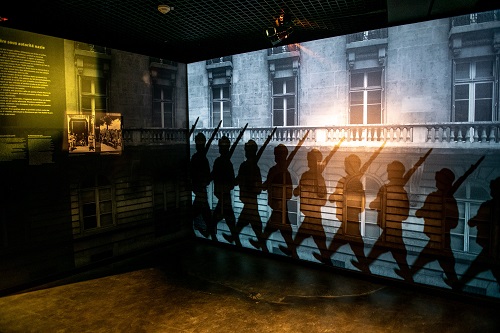
Automne 43
© Jean-Sébastien Faure
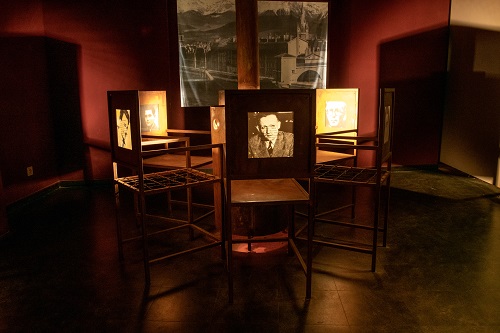
Chez Marie Reynoard
© Jean-Sébastien Faure
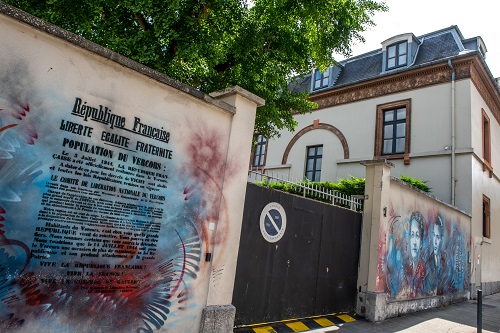
Fresque réalisée par C215
© Jean-Sébastien Faure
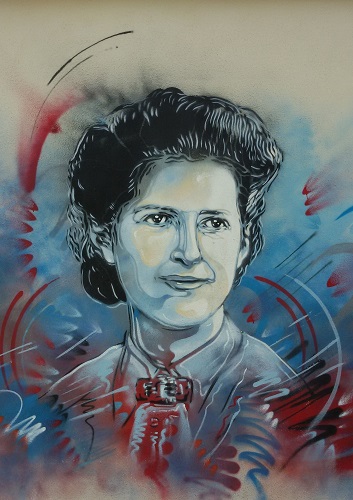
Fresque réalisée par C215
© Jean-Sébastien Faure
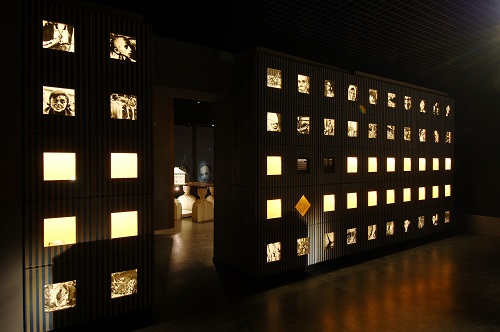
Salle de la Déportation
© CGI
Practical information
14 rue Hébert 38000
Grenoble
Lundi, mercredi, jeudi, vendredi de 9h à 18h Mardi de 13h30 à 18h Samedi et dimanche de 10h à 18h
25 décembre, 1er janvier, 1er mai


